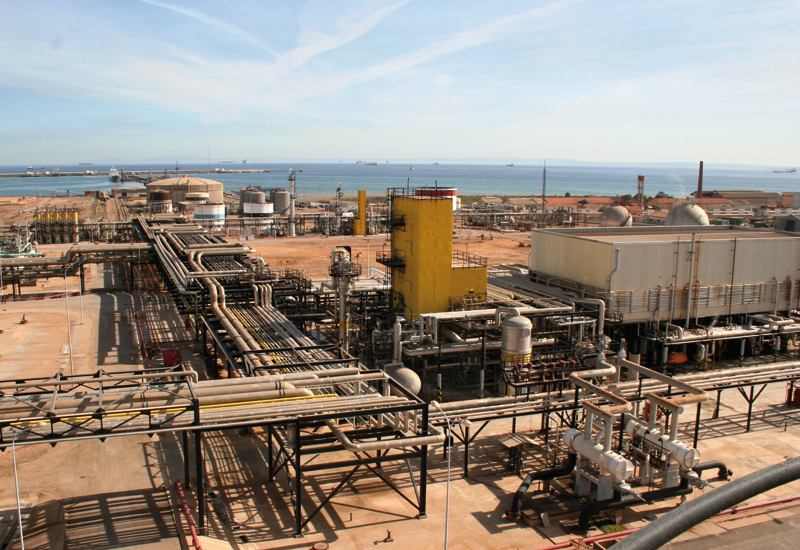In January, Algerian Energy Minister, Youcef Yousfi, has announced that his ministry will submit a plan to Algerian’s government to establish new refineries across the country, to meet the increasing domestic demand for refining products, which has led the country to increase its dependency on imports of refined products.
“We have completed the technical-economic study which aims to determine the long term investment plan in refining sector and distribution,” said the minister. “The investment plan takes into consideration the needs of Algeria from gasoil, gasoline and fuel,” the Algerian minister noted.
The minister also said that the new investment plan will be implemented within five years.
Algeria currently has four operating refineries located in Arzew, Skikda, Algiers, Adrar and Hassi Messaoud, and recently launched a new refinery project in Tiaret, with an investment of US$6bn, a project which is already behind schedule. On 3 April 2011, Algerian state energy giant Sonatrach delayed the award of the FEED contract for the Tiaret refinery indefinitely according to a source close to the project.
“The committee in charge, which belongs to the downstream department, has urged Sonatrach to delay the award for another period,” the source said.
“This is the fourth time after January 2010, September and then November.”
The four contractors include: Technip (France), Sinopec (China) CB&I Lummus (USA), Saipem/Chiyoda (Italy and Japan).
Nevertheless, Yousfi is pushing ahead with his ambitious investments plan. “The study related to this project is underway, and will be released by April or May 2012,” he revealed. “The project is part of 2018 target to increase the refining capacity from 27 million to 31 million tonne per year.”
But, despite these ambitious plans, and the increasing demand for refined products and job opportunities, Algeria’s past record indicate that these projects and plans won’t be executed within the announced time, instead, in most likely scenario is that these projects will be executed over 10 years behind schedule, or shelved definitively due to indecision and government bureaucracy.
In 2007, Sonatrach announced plans to boost its petrochemical production capacity, and it awarded a contract to France’s Total to construct an ethane cracker worth about $5bn. An $800 million methanol project also was awarded in 2007 to the Almet consortium led by Kuwait’s Al-Qurain Petrochemical Industries (QPIC).
Severe delay has led QPIC to scrap the methanol project, and it has decided to set a PET project in Saudi Arabia, according Issa Al-Issa, vice board chairman of QPIC.
“Instability within the management of our local partner Sonatrach doesn’t help the project,” Al-Issa told reporters on the sideline of a recent general assembly of the company. “It’s better to re-locate the project in another GCC country.”
To add to Algeria’s downstream woes, the ethane cracker project with Total remains under negotiation, as the two partners haven’t agreed on the ownership structure and the cost of the feedstock.
Sources have recently said that Qatar Petroleum is now a partner in the project, which has not been officially confirmed. No official statement was released.
With more than $200bn in foreign currency reserves, Algeria has the capital to re-launch its downstream sector, but it needs to make radical changes in the way it does business. Projects delaying has become a tradition and an embarrassing hallmark of Sonatrach. If the ministry and Sonatrach can instead work together effectively, Algeria’s opportunities are boundless.


